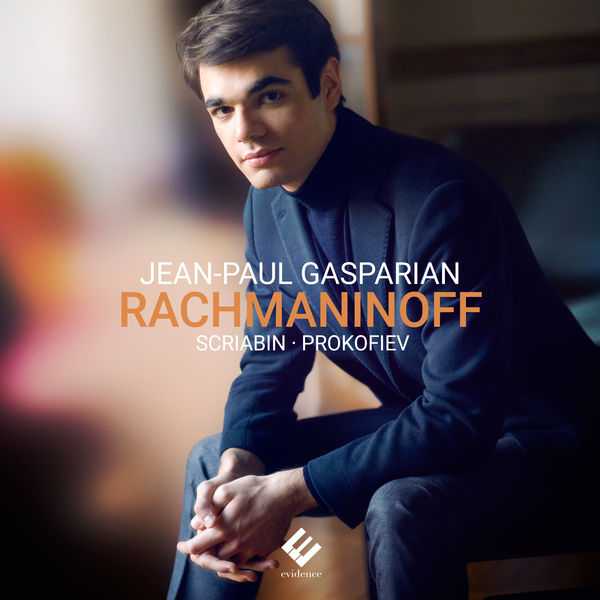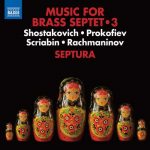

Composer: Sergei Prokofiev, Sergey Rachmaninov, Alexander Scriabin
Performer: Jean-Paul Gasparian
Format: FLAC (tracks)
Label: Evidence
Catalogue: EVCD048
Release: 2018
Size: 862 MB
Recovery: +3%
Scan: yes
Rachmaninov: Etudes-Tableaux, Op. 39
01. I. Allegro agitato in C Minor
02. II. Lento assai in A Minor
03. III. Allegro molto in F-Sharp Minor
04. IV. Allegro assai in B Minor
05. V. Appassionato in E-Flat Minor
06. VI. Allegro in A Minor
07. VII. Lento lugubre in C Minor
08. VIII. Allegro moderato in D Minor
09. IX. Allegro moderato. Tempo di marcia in D Major
Scriabin: Piano Sonata No. 2 in G sharp minor, Op. 19 ‘Sonata Fantasy’
10. I. Andante
11. II. Finale presto
Scriabin: Trois Études, Op. 65
12. Étude No. 1, Op. 65: Allegro fantastico
13. Étude No. 2, Op. 65: Allegretto fantastico
14. Étude No. 3, Op. 65: Molto vivace
Prokofiev: Piano Sonata No. 2 in D minor, Op. 14
15. I. Allegro ma non troppo
16. II. Scherzo. Allegro marcato
17. III. Andante
18. IV. Vivace
Jean-Paul Gasparian, a brilliant pianist who graduated from the Paris Conservatoire and already internationally rewarded, devotes his first album to three giants of Russian music from the beginning of the 20th century: Rachmaninoff, Scriabin and Prokofiev. In this repertoire that suits him perfectly, a strong and bright sound blossoms thanks to his impeccable technique. He also knows how to highlight the typical and colourful harmonies of the Russian composers.
If Jean-Paul Gasparian’s interpretation strikes by its rigor, he doesn’t lack of inspiration. The recorded programme, which includes Rachmaninoff’s Études-Tableaux and Scriabin’s Études, may seem “studious”. But it’s an accomplished musician that we are dealing with. The culture of the young pianist, his knowledge of avant-garde music and philosophy nourish his approach to the scores.
This elegant and bold record is the first step of a brilliant discographic career to come.
Twenty years of Russian piano: that’s what we’re being offered by the young pianist Jean-Paul Gasparian in his first – much-remarked-upon and very remarkable – discographic work. Gasparian starts in 1897 with Scriabin’s Second Sonata (also known as the Sonata Fantasy), still strongly redolent of Chopin, but already showing a few of those harmonic equivocations which were so dear to the mystical composer). And then another Second Sonata, this one by Prokofiev in 1912 – with the “motoric”, wild aspect very much to the fore. The pianist has made the very wise decision not to overdo the score’s brutality, and carefully avoids drowning the work in noisome pedal effects. In the same year, 1912, Scriabin wrote his Three Études Op. 65 in the style of his late maturity, which shines through on Poem of Ecstasy: here again, the soloist opts for transparency, allowing the listener to really follow the harmonic and thematic content – if we can really give the name “themes” to these snatched vignettes, these stitched-together scraps, these ferocious sallies which sound like calls to musical revolt. The album opens with nine Études-tableaux Op. 39 by Rachmaninov, written in 1917, which mix the technical side of the étude with evocative art; deliberately imprecise, the composer never prescribes a programme, providing every listener and pianist with a blank canvas to fill as they see fit. To be sure, the “Isle of the Dead” element breaks out most fully in the second étude, in particular with the deathlessly evocative scraps of the Dies irae… In any case, let us welcome Jean-Paul Gasparian to the great European stage, after his short-notice stint as a stand-in for Zacharias in Germany, and whose career is unfolding with speed and confidence.



